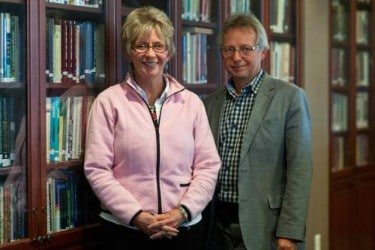“Section 10 of the Doctrine and Covenants contains a rather remarkable reassurance. The date is April 1829, a year before the Church was restored. In this revelation, the Lord refers consistently to his Church as something that already exists. The Restoration, he says, will not ‘destroy that which my people have already received.’ ‘Therefore,’ he continues, ‘whosoever belongeth to my church [in 1829] need not fear, for such shall inherit the kingdom of heaven.’ Those who belong to his church, he tells us, will receive more light. In his words, ‘a part of my gospel’ will be theirs. But this will not, he repeats reassuringly, ‘destroy my church, but I say this to build up my church.'”
Terryl and Fiona Givens
| "The Christ Who Heals"
Topics: Restoration, Truth
